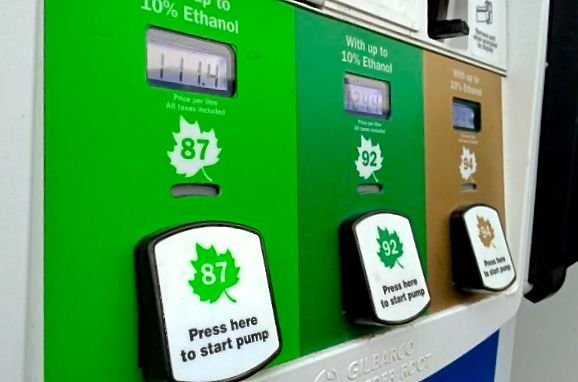CNS Canada — The trickle-down effect of slumping crude oil prices is being felt in the Canadian biofuel market and softening demand for corn and soybeans.
Traditionally, ethanol is cheaper than gasoline, which encouraged processors to blend more than the mandated amount, according to Andrea Kent, president of the Canadian Renewable Fuels Association (CRFA).
“When you look at low gasoline prices now, that price advantage for ethanol really really shrinks,” she said.
That means blenders will meet the mandated five per cent ethanol requirement, but have less incentive to blend at seven or 7.5 per cent, which they normally do when it’s financially advantageous, Kent said.
Read Also

U.S. grains: Soybeans continue gains on Trump’s China comments
Chicago | Reuters – Chicago Board of Trade soybeans continued a three-day rally on Friday, fuelled by President Donald Trump’s…
Biofuel production is a demand driver in the agricultural market, as corn is an ingredient in ethanol production, while soybeans are used in biodiesel, so reduced demand for biofuel trickles down to the agricultural sector.
“Biofuel production is obviously a big driver for corn, soybean and other grain markets,” Kent said.
“Amid lower oil prices you see that kind of low biofuel use can kind of trickle down and have an impact on the farm level as well.”
The impact of reduced opportunistic blending has been mitigated somewhat by policies that mandate a certain amount of biofuel use in Canadian fuels — five per cent for ethanol, and two per cent for biodiesel.
The CRFA is trying to get the mandated amount of biodiesel in diesel fuel up to five per cent by 2020.
— Jade Markus writes for Commodity News Service Canada, a Winnipeg company specializing in grain and commodity market reporting.
















